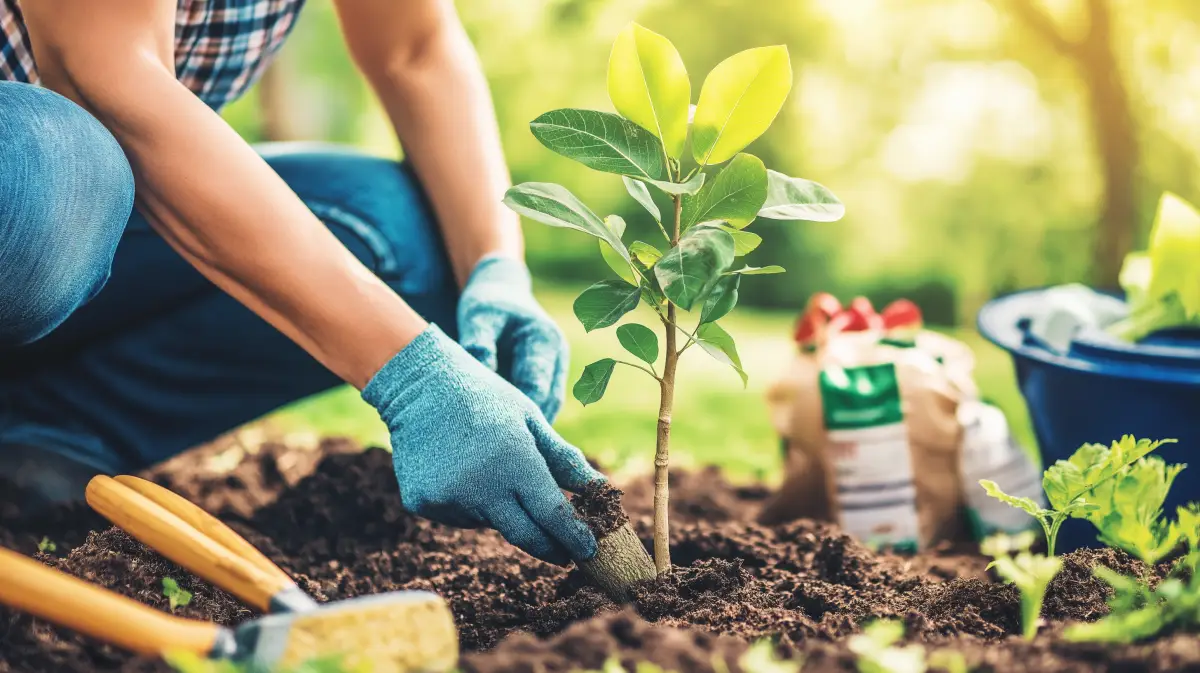How to Successfully Plant Trees and Shrubs

1. How often do I water trees and shrubs?
The amount you need to water trees and shrubs that are planted outside can vary depending on location, temperature, and other environmental conditions. A good rule of thumb is about one inch of water every week. Our suggestion is to check every three days or so by putting your hand two to three inches deep into the soil. If it feels like it's becoming dry, it’s time to water!
2. How can I tell if a tree is dry?
The best way to tell if a deciduous tree is dry is to look at the leaves - if they are wilted it is time to check the soil with your hand. For evergreen trees, since there won’t be any wilting, it is necessary to check the soil with your hand every few days during dry spells to be safe.
3. Do I really need to amend the soil?
Yes, it is beneficial to amend the soil. Unfortunately the soil in our garden rarely has the right balance of nutrients and texture to ensure that plants will thrive. Soil conditioner airifies the soil and adds needed organic material. Compost increases water holding capacity and adds organic material. Amending the soil gives your tree the best chance of survival by making it less likely that it will dry out and by giving it much needed nutrients.
4. What is the ratio for soil amendments?
We suggest using a 1-1-1 ratio of native soil (the dirt that is already in the ground), compost and soil conditioner.
5. Which compost should I pick?
We sell several types of compost, including mushroom compost, chicken manure and cow manure. Mushroom compost is a lighter compost that is easier to work with and spread. Mushroom compost is suitable for most flowering plants, trees, and shrubs, vegetable gardens and herbs and establishing lawns. It is not recommended for azaleas, rhododendrons, or camellias and is not suitable for fruit crops, which prefer neutral to acidic conditions. Manure is a source of many nutrients such as nitrogen, phosphorus and potassium. Usually it has a higher level of these nutrients than mushroom compost does. It is suitable for plants prone to drying out that need water retention.
6. How should I plant my tree or shrub?
When planting, we suggest digging a hole that is twice the size of the plant and no deeper than the crown of the plant. A good rule of thumb is to dig the plant no deeper than the size of the container that it’s in. Even if your tree or shrub sticks up out of the ground a little bit that is okay - covering the crown can kill the plant.
7. Should I be concerned by leaf loss?
This depends on the time of the year and the environment the plant is in. An especially hot, dry summer might cause trees to drop their leaves early without ultimately endangering their survival. Similarly, some fungal diseases like anthracnose and powdery mildew can cause extensive defoliation without ultimately harming the tree or shrub. Sudden changes in lighting, temperature, wind or humidity can cause leaf drop. However, leaf loss can be a sign of a more serious problem such as a root disease, which could eventually lead to death. Feel free to stop by the nursery or call us and we will try to help you pinpoint the reason for your leaf loss.
8. Can I over water? What will happen?
Yes! Depending on how often and for how long a plant is overwatered, this can kill a plant just like underwatering. If the tree sits in water it can cause the roots to drown, which can lead to poor growth, disease, and even death. If the soil looks soupy or muddy that’s too much water. Also, overwatered trees and shrubs have leaves that look wilted or or gummy, not crispy.
9. How should I mulch?
Lay a layer of mulch on top of the plant’s root zone two to three inches deep. Make sure not to cover the crown of the plant(s) with mulch, as this can kill the plant material.
10. When is a good time to plant trees and shrubs in Tennessee?
Fall and Spring are both excellent times to plant in Tennessee. It is possible to plant trees and shrubs during any season, but you have to make sure that you can give the plant everything it needs to survive during a harsher weather period.
11. Do I need to fertilize trees and shrubs? When and how often?
Newly planted trees should be fertilized after the first growing season. Compost and organic amendments spread around trees and shrubs feed them overtime as they need it. Alternatively, tree and shrub plant food spikes are a simple way to accomplish slow-release feeding for the year. They are available specifically formulated for large evergreen shrubs and trees, deciduous trees, and smaller acid-loving shrubs and flowering shrubs. Install them in the dripline of the tree in the Spring and Fall.


